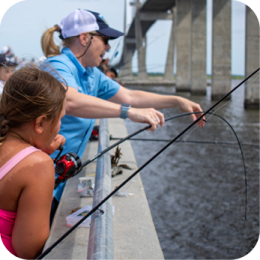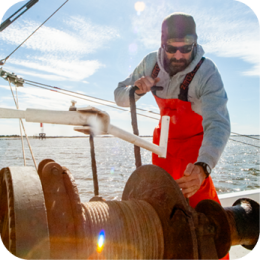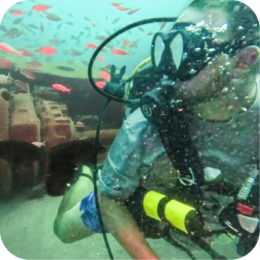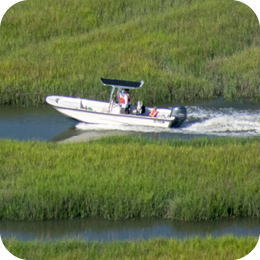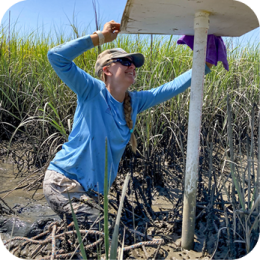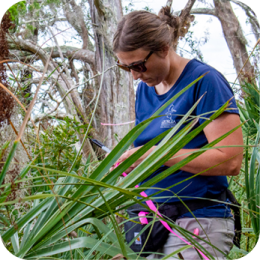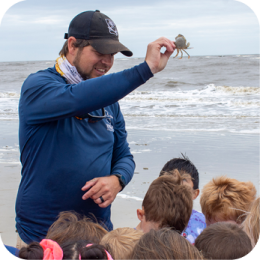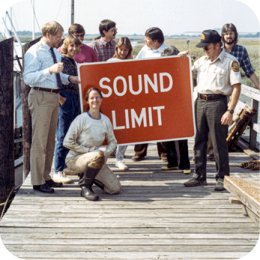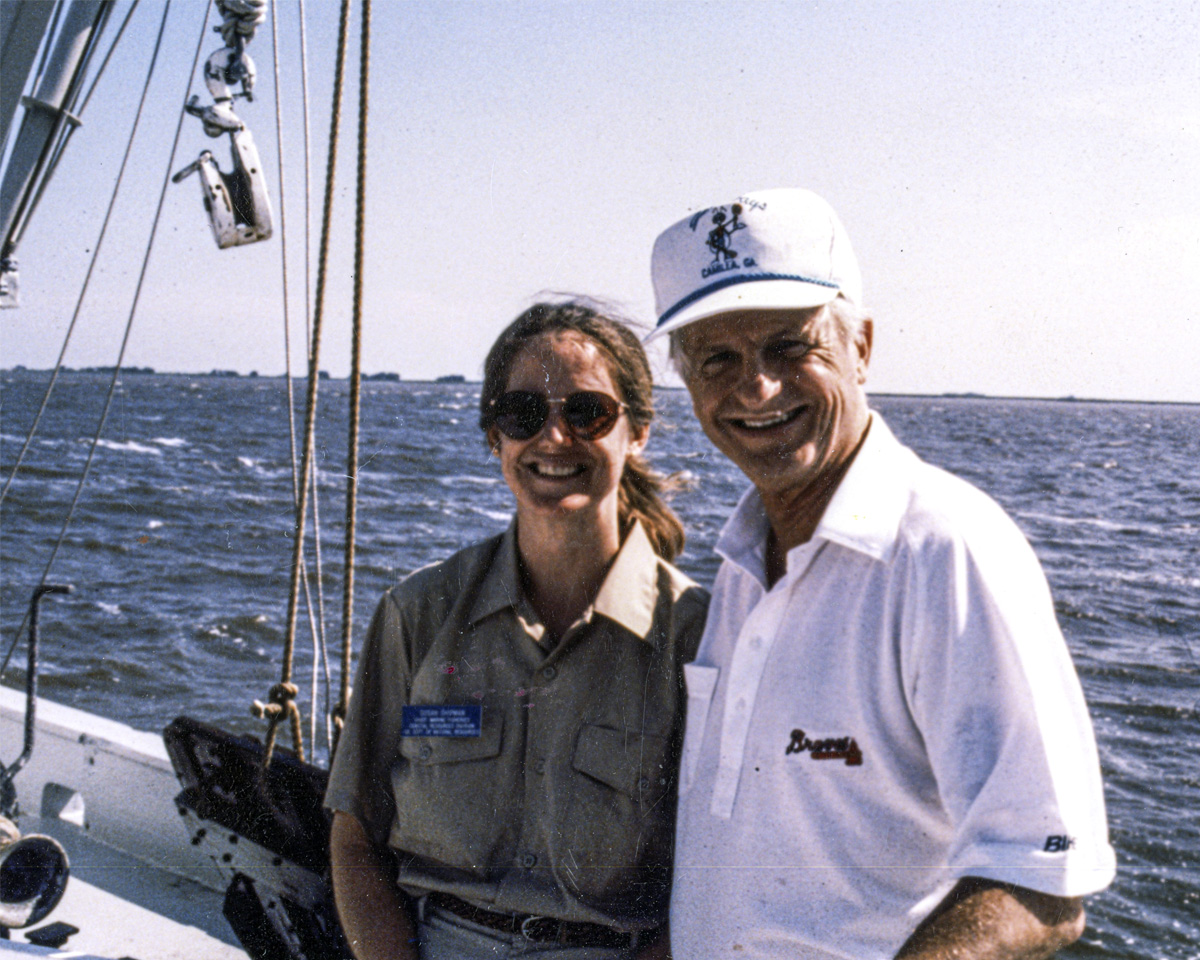
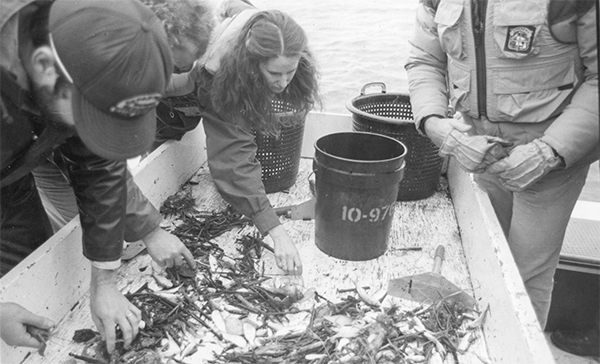 Susan Shipman holds a degree in Zoology from UGA, with further studies in marine sciences at UNC Chapel Hill. She joined the Georgia Department of Natural Resources (DNR) Coastal Resources Division in 1979 as the first female marine biologist. Over her career, she led the Commercial Fisheries Program, served as Chief of Marine Fisheries, and represented Georgia on several fisheries management councils. In 2002, she became Division Director, overseeing fisheries, coastal habitats, and permitting. Susan retired in 2009 after a distinguished career marked by significant contributions to marine biology and coastal resource management. Coastlines Magazine recently caught up with her to see what she’s been up to in her latest chapter of life.
Susan Shipman holds a degree in Zoology from UGA, with further studies in marine sciences at UNC Chapel Hill. She joined the Georgia Department of Natural Resources (DNR) Coastal Resources Division in 1979 as the first female marine biologist. Over her career, she led the Commercial Fisheries Program, served as Chief of Marine Fisheries, and represented Georgia on several fisheries management councils. In 2002, she became Division Director, overseeing fisheries, coastal habitats, and permitting. Susan retired in 2009 after a distinguished career marked by significant contributions to marine biology and coastal resource management. Coastlines Magazine recently caught up with her to see what she’s been up to in her latest chapter of life.
Coastlines: What initially drew you to a career in coastal resource management?
Shipman: I am a native of West Tennessean and grew up near the Mississippi River, north of Memphis. Visits to my maternal cousins on the North Carolina coast drew me to marine science as a career. As a child, I was fascinated by saltmarshes and fiddler crabs. I first attended Mary Baldwin College which had a summer course at the Duke University Marine lab. I participated in that program in between my freshman and sophomore years, and was a teaching assistant for the class the second summer. That hooked me on marine science, and I transferred my junior year to UGA.
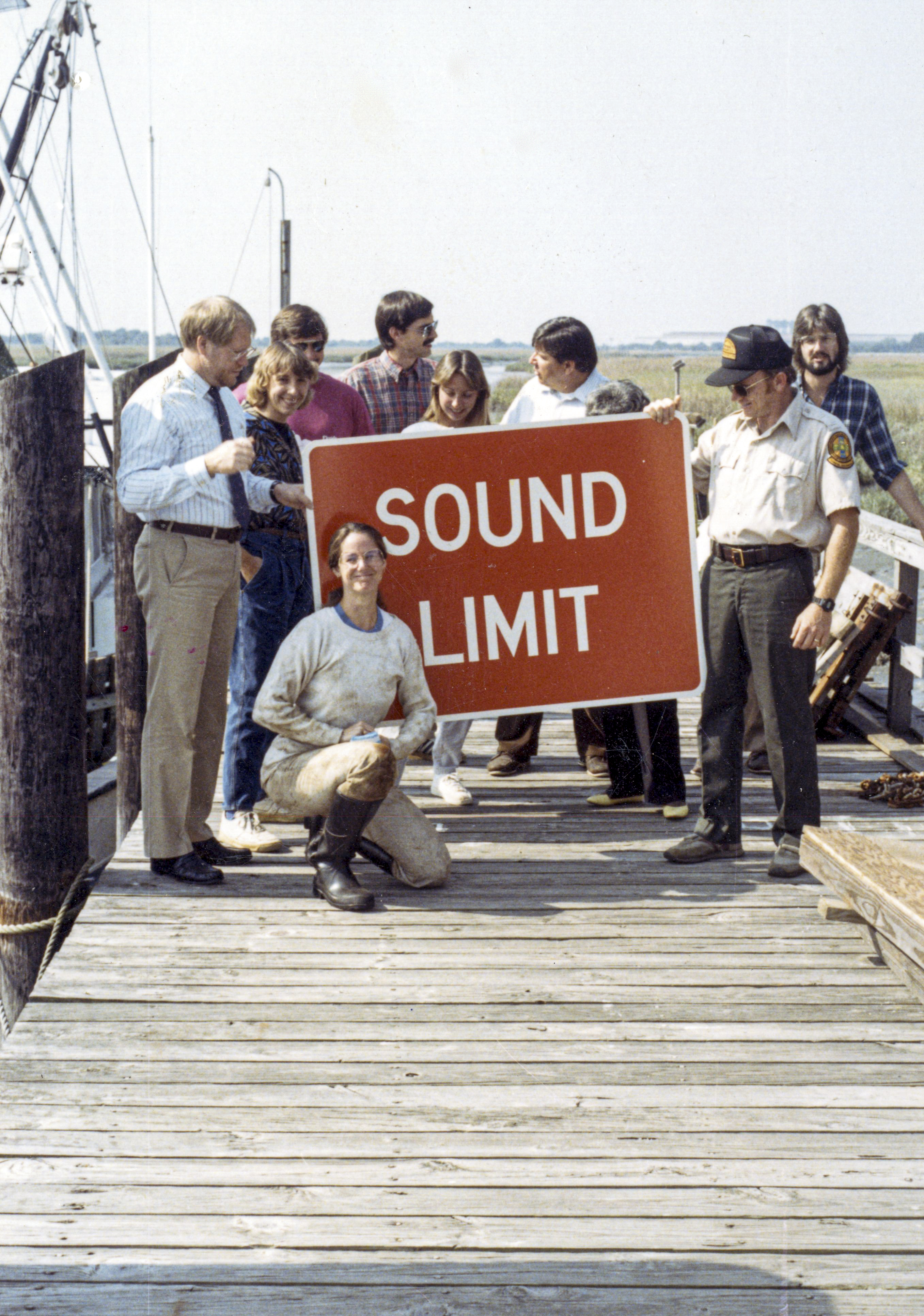 Coastlines: Can you share a memorable moment or project from your time as Director of the Coastal Resources Division?
Coastlines: Can you share a memorable moment or project from your time as Director of the Coastal Resources Division?
Among my most memorable projects was assembling the manual about coastal resources and hazards for the visiting staff and security teams for the G-8 Summit held on Sea Island in summer 2004. Seeing missile launchers on the decommissioned remnant bridges by the newer Causeway Bridges, and at Jekyll’s fishing pier, was surreal. I can’t imagine what security would look like today.
Coastlines: What were some of the biggest challenges you faced during your tenure, and how did you overcome them?
A challenge in my very early career was being accepted in a profession which had been predominately men. The agency biologists were very accepting of me, but some of the vessel captains were skeptical as were fishermen I interacted with. I was one of the first women coastal biologist working in DNR. I overcame resistance by working every bit as hard as the men, and washing the dishes on the research vessels.
Coastlines: How did you see the field of coastal resource management evolve during your career?
The use of technology revolutionized marine work. Computers replaced typewriters, GPS replaced LORAN C, barcode tags replaced plastic streamers for fish, and cell phones revolutionized communications. Population estimates were revolutionized with sophisticated, complex stock assessment modeling. Citizen science became an important source of data. Drones are now used.
Coastlines: Which accomplishment are you most proud of during your time with the Division?
Initially, DNR’s work with marine protected species ( threatened and endangered species) was in Coastal Resources Division. It was transferred to Wildlife Resources Division where the other protected species work was being conducted. Among our proudest accomplishment has been the collaborative work with WRD to protect sea turtles and reverse that decline. It thrills me to see sea turtle nesting numbers in recent summers. The contentious interactions with shrimpers over Turtle Excluder Devices (TEDs) was worth the anguish. I remain very concerned over dire status of the right whale population.
Coastlines: What advice would you give to young professionals entering the field today?
Be as versed in technology as you can be, but don’t rely solely on it. Have high aspirations, but do not shun lower level work that enables you to get your foot in the door. As you advance in the field do not be above doing the work you ask subordinates to do. Jump in there and do the less than pleasant work alongside your colleagues.
Coastlines: How did you balance the need for environmental protection with the demands of economic development along the coast?
In whatever management setting you find yourself, the economic impact of conservation strategies you are considering for implementation must be taken into consideration. Abundant sustainable natural resources are extremely important to the coastal economy and to eco-tourism on the coast—sportfishing, boating, kayaking, birding, beach-going, eco-lodges, etc. support many jobs on the coast. The commercial fishing industry is part of this coast’s heritage. The landscape alone—our extensive marshes, is important to our real estate market.
Coastlines: What do you think are the most critical issues facing coastal resources today, and how should they be addressed?
Unbridled growth and the associated demands that are being put on the Floridan aquifer; loss of freshwater wetlands, declining working waterfronts, climate change. Resiliency planning is imperative.
Coastlines: How do you plan to stay connected to the field or the Division in retirement?
I am an active Board member for the St. Simons Land Trust, which manages 1200+ acres on St. Simons Island. I have the pleasure of working on management plans with several DNR professionals from both CRD and WRD on our Stewardship Committee. I also work with several colleagues on collaborative projects such as the Living Shoreline Task Force. I handle permit requests for the Land Trust. It is interesting to be a client seeking a fishing platform permit for the Land Trust. Without exception the current CRD staff are consummate professionals.
Coastlines: What have you been doing in this most recent chapter of your life?
I am a hobbyist beekeeper and take my bees into schools, scouting events, garden clubs and other organizations to educate our community on the importance of pollinators to our food production.
I represent apiarists on the Glynn County Farm Bureau Board, am active with the Land Trust in technical matters, and chair the Golden Isles Youth Orchestra Board. I coordinate Christ Church’s hunger outreach program for children in our local school system, Backpack Buddies.
